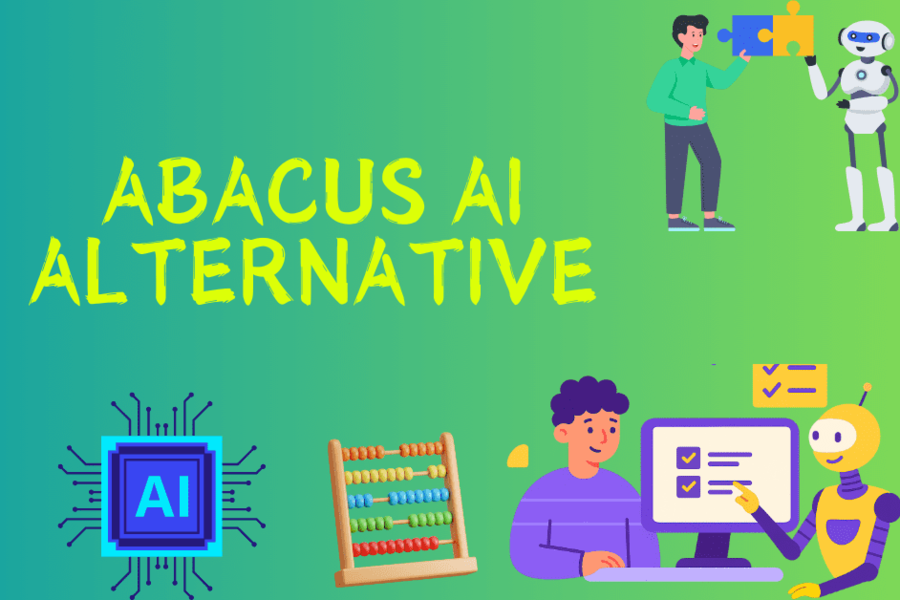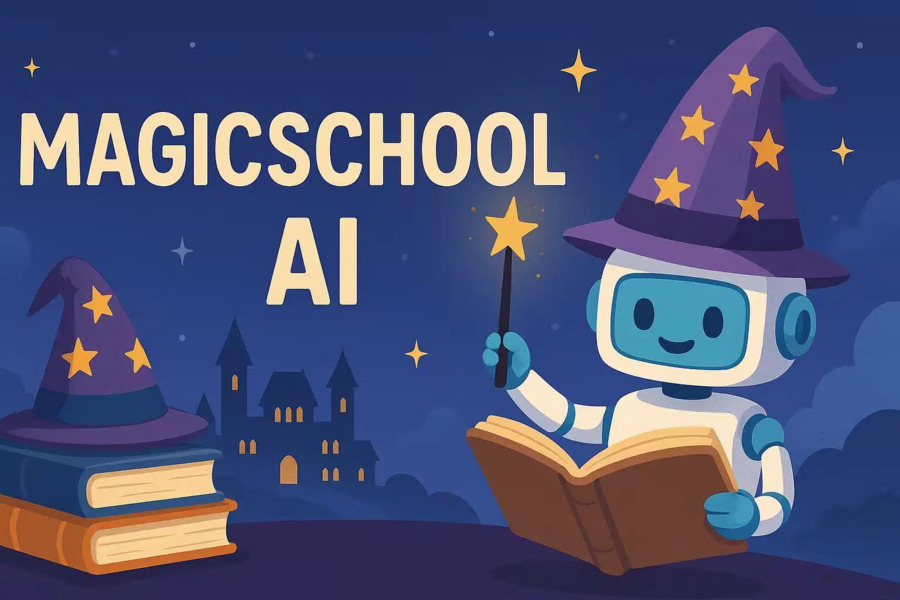If you’ve ever explored the world of artificial intelligence, chances are you’ve come across Abacus AI. It’s a powerful platform, but what if it doesn’t quite fit your unique needs? That’s where the search for an Abacus AI alternative comes into play—it’s like finding the perfect tool in a well-stocked workshop: the right fit makes all the difference.
In this guide, we won’t just throw a list of names at you. We’ll explore the landscape of AI platforms, highlighting what makes each option unique, who it’s designed for, and what you should keep in mind before making your choice.
Whether you’re a developer, sales professional, or business leader, there’s an AI solution tailored for you. So, grab your favorite drink and let’s dive in!
What is Abacus AI?
Abacus.AI acts as a comprehensive AI workshop, enabling organizations to integrate advanced artificial intelligence into their applications without building everything from scratch.
Instead of hiring an entire team of data scientists for every project, Abacus.AI provides an automated “AI Engineer” to handle the heavy lifting.
Whether you’re developing a custom chatbot, a forecasting system, or a recommendation engine, the platform is designed to simplify the process and help businesses deploy cutting-edge AI with ease. In short, it’s a place where AI helps you create more AI.
6 Best Abacus AI Alternatives
Here are six standout Abacus AI alternatives, each bringing something unique to the table.
1. AiSDR

AiSDR is not just another AI tool—it’s an autonomous sales development representative. Designed to manage the entire outbound sales process, this platform acts like a tireless, intelligent team member. It identifies high-potential prospects and reaches out via email, LinkedIn, and SMS, using “buyer readiness signals” to tailor its messaging and timing for maximum impact.
From prospecting to lead qualification, AiSDR automates the early stages of the sales pipeline without requiring human intervention. It’s an ideal Abacus AI alternative for sales teams focused on scaling their outreach while maintaining meaningful customer connections.
Key Features:
- Autonomous sales agent handling full-cycle outreach
- Multi-channel engagement across email, LinkedIn, and SMS
- Real-time, two-way conversation capabilities
- Data-driven buyer intent signals
- Automated lead nurturing and qualification
2. Grok
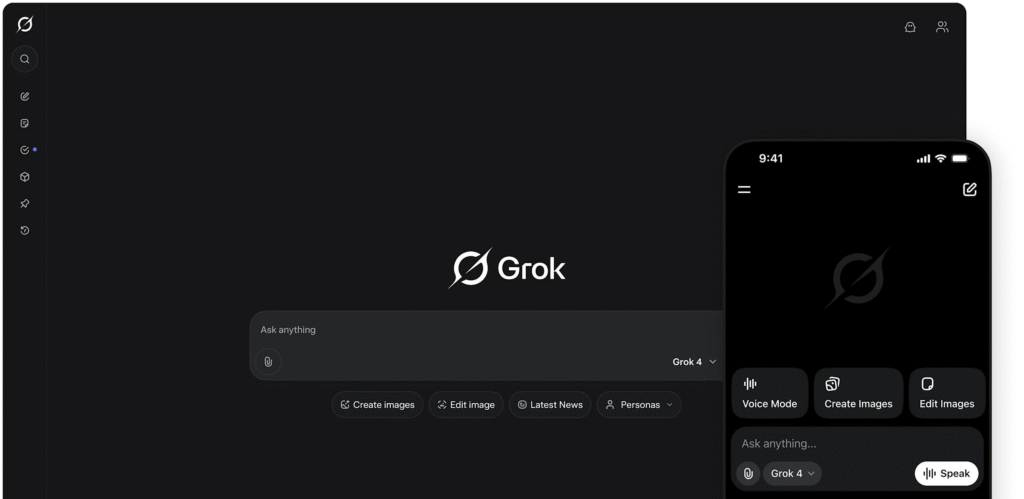
Grok stands out as a versatile and general-purpose AI sidekick. Developed by xAI, its mission is to “maximize truth and objectivity.” Unlike niche sales tools, Grok offers a broad set of features including real-time web search, image generation, and trend analysis. It’s a great fit for users who need a flexible AI assistant for research, content creation, or everyday tasks.
Key Features:
- Real-time web search for accurate information
- Image generation and creative support
- Broad usability for casual and power users
- Free and accessible for most users
3. LinkedIn Sales Navigator
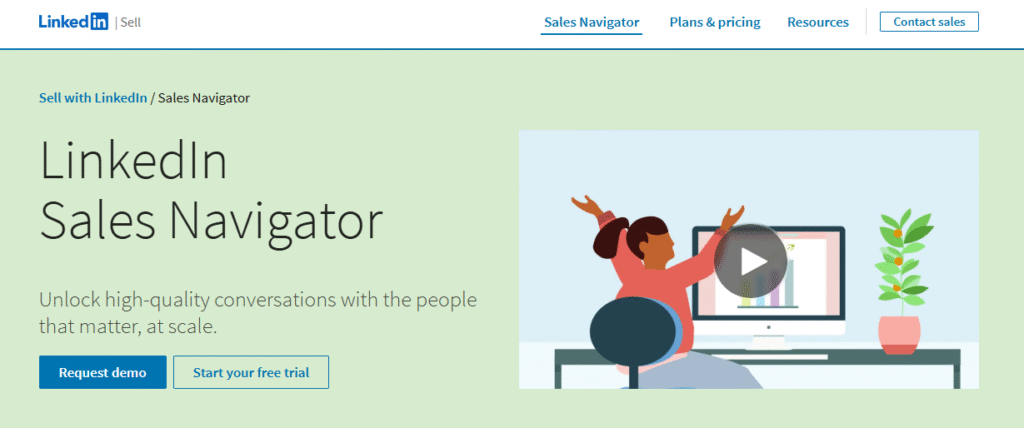
A trusted name in B2B sales, LinkedIn Sales Navigator leverages the world’s largest professional network to help sales teams find and engage with the right prospects. While it doesn’t focus on building custom AI models, it supercharges sales processes with data intelligence, advanced filtering, and seamless CRM integration.
Key Features:
- Advanced search with customizable filters
- CRM integration for streamlined workflows
- Real-time alerts on prospect activity
- InMail messaging for outreach beyond your network
- Buyer engagement tracking
4. InsideSales (Playbooks)

Now known as Playbooks, InsideSales is an AI-driven sales engagement platform that helps teams design smarter outreach strategies. It combines automation with a human touch, using predictive analytics and lead prioritization to help reps focus on high-value opportunities.
Key Features:
- AI-powered cadence builder for outreach sequences
- Lead scoring and prioritization
- Guided selling with real-time insights
- Multi-channel automation
- Performance analytics and tracking
5. Apollo.io
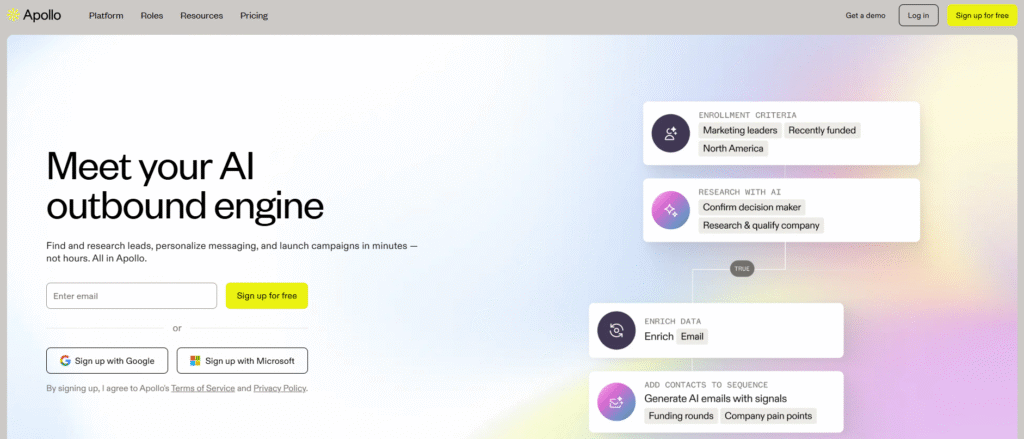
Apollo.io is an all-in-one sales intelligence platform with a massive database of over 210 million contacts and 35 million companies. It streamlines prospecting, engagement, and revenue acceleration with tools like email sequencing, automated workflows, and detailed analytics.
Key Features:
- Extensive database of contacts and companies
- Sales engagement tools including email automation
- Real-time intent data and analytics
- Integrations with CRM and LinkedIn
- Customizable lead scoring
6. Airtable

Airtable offers a unique twist as a no-code app-building platform with built-in AI capabilities. Its “Airtable Assistant” helps users perform tasks like data analysis, research, and document processing within custom applications. It’s highly flexible and integrates with tools like Slack, Google Drive, and Salesforce.
Key Features:
- No-code app development
- AI-powered data analysis and automation
- Wide range of third-party integrations
- Customizable interfaces and workflows
Factors to Consider When Choosing an Abacus AI Alternative
With so many compelling options, how do you choose the right Abacus AI alternative for your organization? It’s not just about features—it’s about alignment with your goals, team, and resources. Here are a few key factors to keep in mind.
1. Define Your Use Case
Start by asking what specific problem you want to solve. Are you looking for predictive analytics, sales automation, or custom AI model development? Each platform has its own strengths, and your use case will help narrow down the choices. A tool perfect for sales might not suit a technical team building machine learning models.
2. Evaluate Ease of Use and Customization
Consider the technical skills of your team. Some platforms offer no-code/low-code solutions for quick deployment, while others provide extensive customization through APIs and coding. The ideal tool should balance simplicity and power based on your team’s expertise.
3. Prioritize Explainability and Transparency
As AI becomes more integral to business operations, understanding how decisions are made is crucial—especially in regulated industries. Look for platforms with built-in explainability features that help you interpret model behavior, mitigate bias, and build trust with stakeholders.
4. Assess scalability and Pricing
Pricing models for AI tools can vary significantly. Some charge based on data usage, others on compute resources or user seats. Think long-term: will the platform grow with your needs without exceeding your budget? Take advantage of free trials to test how the tool performs with your data before making a commitment.
Conclusion on Abacus AI Alternative
The search for the perfect Abacus AI alternative is an opportunity to find a tool that truly aligns with your vision and workflow. The AI landscape is richer and more diverse than ever, offering specialized solutions for nearly every use case. By understanding your goals, evaluating ease of use, prioritizing transparency, and considering scalability, you’re well on your way to selecting a platform that doesn’t just meet your needs but helps you innovate and grow.
Whether you choose a specialized tool like AiSDR, a versatile platform like Grok, or a flexible builder like Airtable, the right AI companion is out there. Trust your instincts, ask the right questions, and don’t hesitate to experiment. Here’s to finding the AI tool that feels like it was made just for you!
